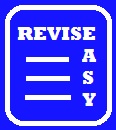Children & Young People's Workforce L2
TDA 2.7 Maintaining and supporting relationships with
children and young people
The EYFS states that the key person in the childcare setting is an important figure in fostering a positive relationship with children and young people. Good communication skills and understanding of cultural differences help to develop and maintain a good relationship
Practitioners should apply the following skills to communicate with children and young people:
- Position yourself at children's level (height)
- Keep eye contact when talking to children
- Smile
- Avoid folding your arms
- Avoid pointing finger
- Don't stand too close
- Use a gentle tone when speaking
- Repeat words and phrases to check understand
- Listen attentively
- Ask open-ended questions that encourage children to talk
- Ask open-ended questions to show respect of their opinions
- Avoid interrupting them when talking
- Do not finish their sentence for them
- Allow them time to express themselves, do not hurry them.
The EYFS states that the key person in the child care setting is an important figure in fostering a positive relationship with children and young people.
The following are characteristic that a key person should have in order
develop and maintain a good relationship with children and young people:
- Have the ability to recognise children's needs and respond appropriately
- Be empathetic to children's needs
- Respond sensitively to children's feelings, ideas and
- Show respect to them: being polite, listening to them and valuing what they say
- Make children feel welcome - greet them, smile, chat to them
- Show interest in what they do ?ask questions that elicit response
- Make children feel supported
- Have the ability to form rapport - be able to connect with the children and understand them
- Give full attention - stop your work, look at child, listen actively and respond.
- Support children with special communication needs e.g. child with hearing impairment or a child who does not speak English
- Respond appropriately to show that you understand. Murmur ("uh-huh" and " um-hmm") and nod. Raise your eyebrows. Say words such as Really", "Interesting", as well as more direct prompts: "What did you do then?" and "What did she say?"
Understanding cultural differences in communication
| Body language | Culture | Translation | Translation in English |
|---|---|---|---|
| Eye Contact | Asia | Showing respect | Showing Disrespect |
| Nodding | Japan | No | Yes |
| Thumbs up | Greek | Bad | Good |
| Pointing | All cultures | Being rude | To indicate |
Click here for TDA 2.7 in pdf format
REFERENCES
DFE (2014) Development Matters in the Early Years Foundation Stage (EYFS)
DFE (2014). Statutory framework for the early years foundation stage
DEF(2014). Early years (under 5s) foundation stage framework (EYFS)
DFE (2014) Keeping children safe in Out of hours provisions
DFE(2014) Early Years Outcomes
Parents - guide to EYFS (2014)
What to expect and when (2014)
The British Association for Early Childhood Education
(Supported by DFE)
Every Child Matters 2003)
Effective Pre-school and Primary Education 3-11 Project (2003-2008)
DFE (2008) Effective Pre-School and Primary Education 3-11 Project (EPPE 3-11)
Parliament (2003) Every Child Matters
Tassoni et al (2010) Level 3 Diploma Children and Young People's Workforce (Early Learning and Childcare). Pearson: Harlow Essex
Caroline Meggit et al (2011) CACHE Level 3 Children and Young People's Workforce Diploma: Early Learning and Child Care. Hodder Education: London
www.gov.uk/government/
publications/2010-to-2015-government-policy-childcare-and-early-education
www.education.gov.uk/publications
www.foundationyears.org.uk.
www.legislation.gov.uk/
www.4children.org.uk
